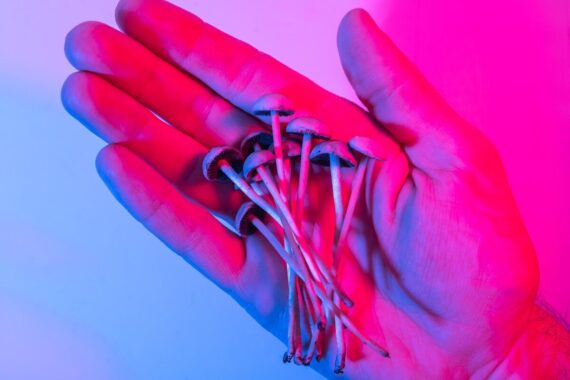High-dose psilocybin may be effective in treating depression

High doses of psilocybin – the psychedelic ingredient in magic mushrooms – appear to have a similar effect on depressive symptoms as an antidepressant, according to a meta-analysis of the evidence.
But some of the promise of psychedelic treatment for depression may have been overestimated due to issues with trial design, the results suggest.
The study was done to unpick to what extent studies showing the effectiveness of psilocybin for depression may be biased due to participants knowing whether they have taken it or not because of its subjective effects.
Trials have also commonly been done with use of the drug alongside psychological support, making picking out the drug-related effects even harder.
To analyse what is really happening, the team compared trials of psychedelic treatment with either MDMA, LSD, psilocybin, or ayahuasca with results from studies of the SSRI escitalopram as well as one study comparing psychedelic therapy directly with the antidepressant.
They found that the placebo responses in psychedelic trials were lower than in escitalopram trials.
It meant that while most psychedelics performed better than placebo in psychedelic trials on a specific 17-point scale of depression only high-dose psilocybin was better than placebo in escitalopram trials.
The small effect size found was similar to that seen with current antidepressant drugs, the researchers reported in the BMJ.
None of the interventions were associated with a higher rate of severe adverse events, including death, admission to hospital, or suicide attempt, or discontinuation than placebo, the team found.
It suggests that while flaws in study designs may have overstated the effectiveness of psychedelics, high dose psilocybin ‘appeared to have the potential to treat depressive symptoms’.
Only the acute effects of the interventions were assessed and that the long-term effects of psychedelics and escitalopram remain unclear, the authors stressed.
But they concluded: ‘Our analysis suggested that the standardised mean difference of high dose psilocybin was similar to that of current antidepressant drugs, showing a small effect size.’
‘Improved blinding methods and standardised psychotherapies can help researchers to better estimate the efficacy of psychedelics for depressive symptoms and other psychiatric conditions.’
Previous studies have shown particular benefit for patients with treatment-resistant depression when it is given alongside psychological support.
Pulse July survey
Take our July 2025 survey to potentially win £1.000 worth of tokens

Visit Pulse Reference for details on 140 symptoms, including easily searchable symptoms and categories, offering you a free platform to check symptoms and receive potential diagnoses during consultations.
Related Articles
READERS' COMMENTS [3]
Please note, only GPs are permitted to add comments to articles











I think the bottom line is if you could pick up someones brain and give it a good shake to really ‘mix up’ all the crazy thoughts in there, chances are, if the person inside was feeling depressed they’d likely perk up a little. Similar to what happens when you give someone ECT. Really I think you’ll find its as basic as that. All the heavy pseudo scientific chit chat looking to explain it all needs to focus on the basics of what’s going on. It’s just metaphorically sticking your head in a kitchen blender. Thats it there..only in a lovely “pill”? form
..like curing hiccups by popping an empty big of crisps by their ear
same goes for Ketamine